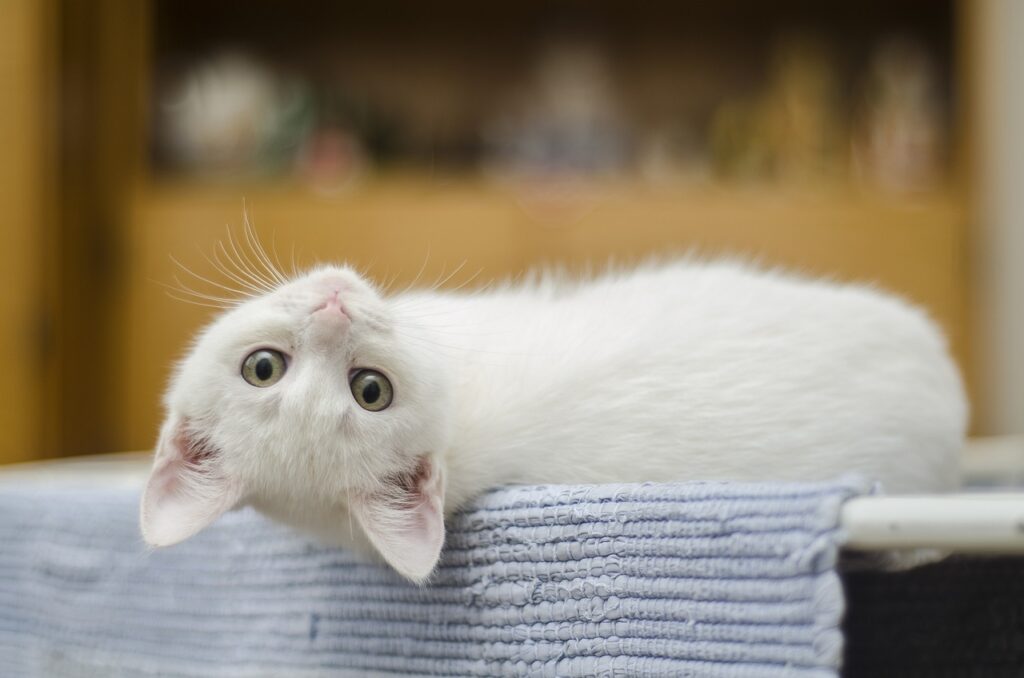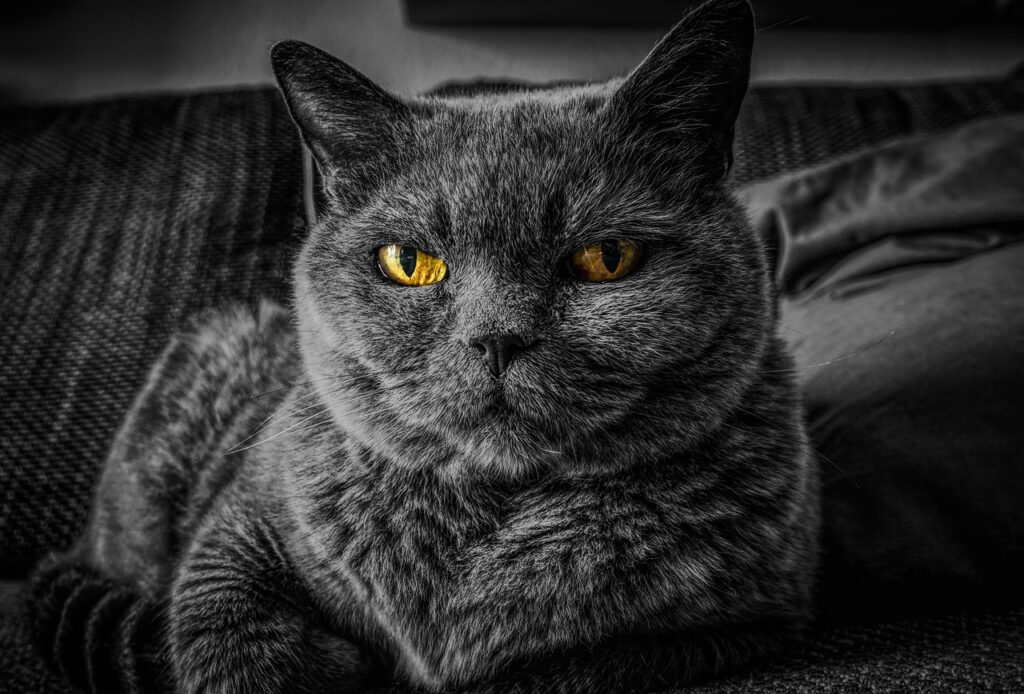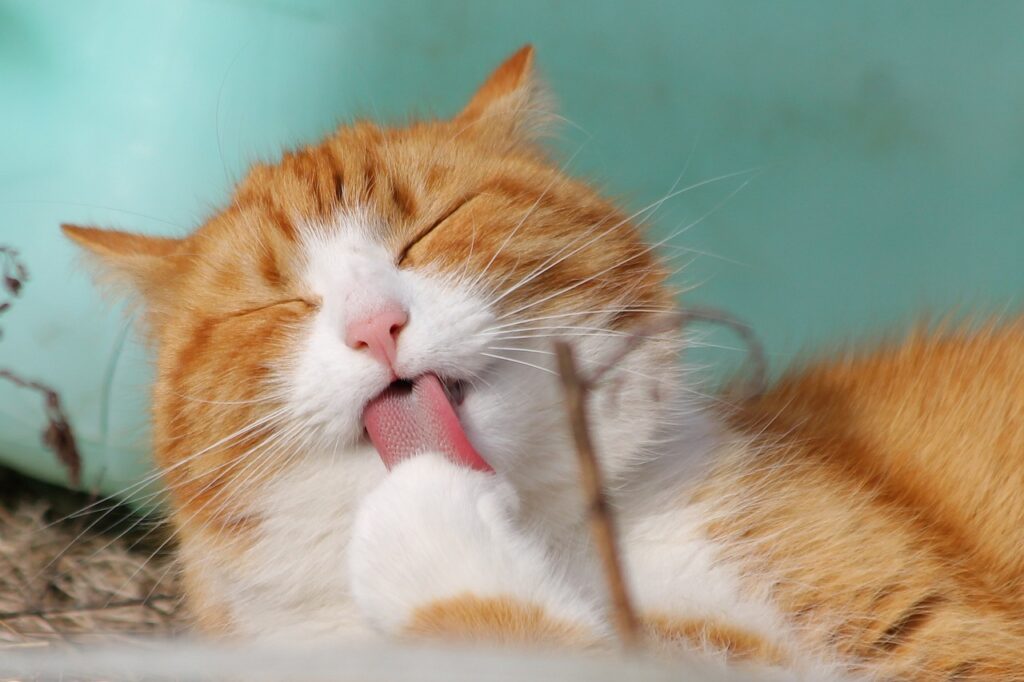Cats are great because they’re a lot like us! They love getting attention, playing, and being with friends, just like people do. Sometimes, we notice that cats and humans do similar things.
Some people wonder if cats can be autistic, like some humans. Autism is about how our brains work, and cats show some behaviors that are alike. But, can cats have autism? Let’s learn more to find out!
Read Also : Can cats eat carrots?
Table of Contents

What is autism?
Autism is not just one problem; it’s a group of conditions that can affect how we talk, socialize, and do things over and over. People with autism might have different issues, and it can vary a lot from person to person.
Experts like to say “autism spectrum” or “autism spectrum disorder” instead of just “autistic” because it’s not the same for everyone. Some people might have mild troubles, while others need a lot of help.
Autism is about how we grow and learn. There aren’t usually physical signs, so it can be hard to tell. This can make it tough for people with autism because others might not know they’re dealing with certain behaviors.
Some behaviors linked to autism are hard to explain in a short article. But here are a few that are sometimes seen in people and also in cats:
- Having trouble connecting with others
- Not liking eye contact and wanting to be alone
- Not wanting to be held, touched, or cuddled
- Being interested in others but finding it hard to talk or play with them
- Doing the same things again and again
- Finding it tough when routines change
If you want to know more about autism, you can visit Autism Parenting Magazine.
Now, let’s check what science says about whether cats can be autistic.

So can cats have autism?
Sometimes, we think our pets have human feelings or traits, but that’s not true for cats.
We might believe that cats understand us, like us, miss us, and get us. But, cats are not like people.
Cats don’t have the same feelings and wants as humans do. They have different social behaviors, especially when they’re with other cats.
Cats see people, other cats, and everything around them in a different way than we do.
Signs of an Autistic Cat
Some cats might act a bit differently, like humans with Autism Spectrum Disorder (ASD). These cats may seem a little odd, but they’re not truly autistic.
Here are a few things that might make a cat look special. They might not show all of these signs because every cat is different. Let’s talk more about it:
- Meowing a Lot: Cats can be chatty, but that doesn’t mean they’re autistic. Some cats love to meow a bunch, while others stay quiet. Just like people, cats have their ways of communicating.
- Not Being Social: Some cats might not like being around other animals or family members. They might not enjoy petting or eye contact. This doesn’t mean they’re autistic; they prefer to be alone.
- Sensory Stuff: People with ASD might have different feelings about touch, sound, or light. Cats can also act funny with their senses, but it’s often because of health issues, not autism. If you notice something strange, it’s best to check with the vet.
- Loving Light and Movement: Cats enjoy playing with laser lights or moving toys. It’s normal cat behavior, even though it might look like ASD symptoms. Cats are being playful, not autistic.
- Having Strong Likes and Dislikes: Some cats can be picky about food or toys, like people with ASD. But it doesn’t mean they’re autistic. Cats have their preferences, and it’s okay.
- Being Smart: While some people with ASD can be super smart, it’s not the same for cats. Some cat breeds are naturally clever, but it doesn’t mean they’re autistic.
Remember, if you think your cat is acting strange, it’s a good idea to talk to the vet. They can help figure out if there’s anything to be concerned about. Most of the time, though, your cat is being its unique self!

Can cats be on the autism spectrum?
Autism Spectrum Disorder is a mental condition, and although cats can have psychological issues like Obsessive-Compulsive Disorder, there’s no proof that cats can be on the autism spectrum. Most behaviors in cats that may seem autistic are usually just normal cat behaviors.
Cats may have mental problems because of physical issues like injuries or sickness. Unlike autism, which is linked to genes, a cat’s behavior is more affected by physical things, and sometimes they act differently when they feel threatened.
While cats might get away with behaviors that would be considered unacceptable in humans because they’re cute, people face more consequences for similar behaviors. For example, someone who struggles with making eye contact or communicating might face challenges in life. In contrast, a cat displaying similar behaviors is a typical cat.
What about Enhanced Intelligence?
Sometimes, people link autism with exceptional skills in things like math or music. While this brilliance is quite rare and can be exaggerated in movies or shows, some may think their cats are super smart and even autistic.
But, the truth is, cats can be clever (especially when treats are involved!). Certain breeds, like Abyssinians and Burmese, are known for being intelligent, and if you have one, you might be amazed by their brains.
However, being smart doesn’t mean a cat is autistic, even if they don’t like cuddling or find it hard to communicate. It’s part of their unique cat personality.

How about recurrent behaviors?
Some people with autism may show repetitive behaviors like fidgeting or sticking to certain routines. Cats can also have habits like over-grooming or chasing things that aren’t visible to us.
But, having these behaviors doesn’t mean your cat is on the autism spectrum. Both cats and humans can experience Obsessive-Compulsive Disorder (OCD), which leads to extreme repetitive behavior in cats. Stress or chasing laser pointers can cause OCD in cats.
If you notice obsessive behaviors in your cat, it’s important to talk to your veterinarian. However, having OCD doesn’t mean your cat is autistic.
Conclusion: Can cats be autistic?
Cats sometimes show behaviors similar to people on the autism spectrum, but that doesn’t mean they have the disorder. These behaviors are part of your cat’s unique personality.
If your cat’s behavior isn’t causing any harm to them or you, there’s nothing to worry about. However, it’s a good idea to check on other pets in your home. There’s some evidence that dogs can be autistic.